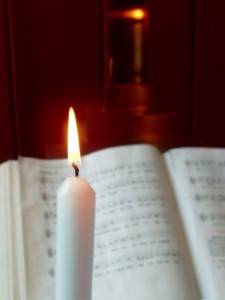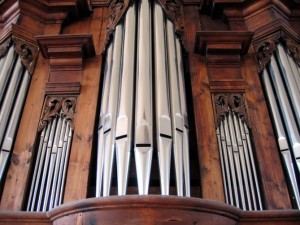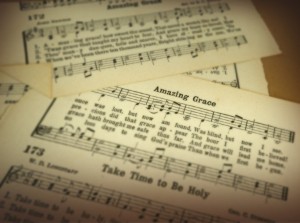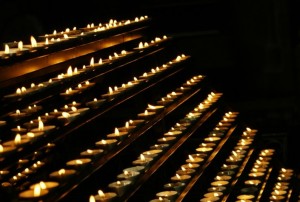 In our article “How funerals are changing” we explained how funerals have changed dramatically in recent years. Funerals have become more about celebrating a person’s life than mourning their passing. Religion plays less of a role than it previously did. Cremations are now far more popular than burials. There has been a noticeable increase in environmentally friendly funerals. And perhaps one of the biggest changes of all is the growth in personalisation of funerals. This means adding personal touches to the funeral, including getting to the service, the service itself, and the reception afterwards, to make the funeral reflect the character, unique attributes and life of the person who has passed away. Key ways to do this include through choices of music, poetry, readings and eulogies, which we will look at in this article.
In our article “How funerals are changing” we explained how funerals have changed dramatically in recent years. Funerals have become more about celebrating a person’s life than mourning their passing. Religion plays less of a role than it previously did. Cremations are now far more popular than burials. There has been a noticeable increase in environmentally friendly funerals. And perhaps one of the biggest changes of all is the growth in personalisation of funerals. This means adding personal touches to the funeral, including getting to the service, the service itself, and the reception afterwards, to make the funeral reflect the character, unique attributes and life of the person who has passed away. Key ways to do this include through choices of music, poetry, readings and eulogies, which we will look at in this article.
However, when planning your funeral or your loved one’s funeral it is important to know what the chosen venue will allow and will not allow. For example, many churches now allow you to have a mixture of religious hymns and non religious music, and to include non-religious readings, poems and eulogies, but some ministers do not allow mixed funerals. Different religions and different venues will have different rules, so don’t plan too much without knowing what can and cannot be done. Speak to the venue and to your funeral director for advice.
Music
 People’s choice of music for a funeral perhaps best highlights how funerals have changed in recent years. Go back a few years and you would expect most funerals to include hymns such as The Lord’s My Shepherd or Abide With Me, regardless of whether or not the person who had passed away was religious. Now however there is a wide variety of music played or performed at funerals, which follows the trend towards personalisation and these choices tend to have more meaning to the person who has passed away. A favourite song or a favourite hymn or anthem would be an obvious choice, or a song that always moved them to tears, or was played at a special occasion.
People’s choice of music for a funeral perhaps best highlights how funerals have changed in recent years. Go back a few years and you would expect most funerals to include hymns such as The Lord’s My Shepherd or Abide With Me, regardless of whether or not the person who had passed away was religious. Now however there is a wide variety of music played or performed at funerals, which follows the trend towards personalisation and these choices tend to have more meaning to the person who has passed away. A favourite song or a favourite hymn or anthem would be an obvious choice, or a song that always moved them to tears, or was played at a special occasion.
The music should also be appropriate to the occasion. Whilst funerals have become more about celebration and personalisation, it is important to get the mood right. Songs like Ding Dong the Witch is Dead from the film The Wizard of Oz, Bat out of Hell by Meatloaf, Another One Bites the Dust by Queen, Highway to Hell by ACDC, Disco Inferno by The Trammps and Great Balls of Fire by Jerry Lee Lewis often appear on lists of popular funeral songs, but you should think very carefully about using them. If the person who has passed away had a particular sense of humour and expressly wanted a song like this played at their funeral then that is fine, and you can announce at the funeral that they expressly wanted this played. But if you just decide to play one of these songs off your own bat without giving any context then some people at the funeral might understandably take offence. Make sure all close relatives are happy with the choice of music, and think carefully about the consequences of choosing a song.
Modern music
 Various surveys are published occasionally which show some of the more popular songs at funerals. These tend to include:
Various surveys are published occasionally which show some of the more popular songs at funerals. These tend to include:
- Always Look On The Bright Side Of Life (from Monty Python’s Life of Brian)
- My Way (Frank Sinatra)
- Angels (Robbie Williams)
- Hallelujah (Leonard Cohen)
- My Heart Will Go On (Celine Deon)
- You’ll Never Walk Alone (Gerry and the Pacemakers)
- Simply the Best (Tina Turner)
- Time to Say Goodbye (Sarah Brightman and Andrea Bocelli or Katherine Jenkins)
- I Will Always Love You (Whitney Houston / Dolly Parton)
- Unforgettable (Nat King Cole)
- We’ll Meet Again (Vera Lynn)
- Wind Beneath My Wings (Bette Midler)
- You Raise Me Up (Westlife)
- Over the Rainbow (Eva Cassidy)
- Fields of Gold (Eva Cassidy)
- Imagine (John Lennon)
- Bring Me Sunshine (Morecambe and Wise)
- Stand by Me (Ben E King)
- In My Life (The Beatles)
- Stairway to Heaven (Led Zeppelin)
- Time After Time (Cyndi Lauper)
- Nothing Compares 2U (Sinead O’Connor)
- What a Wonderful World (Louis Armstrong)
You can see why most of these are popular choices, and how some of these might have special meaning to people – We’ll Meet Again might be particularly poignant for veterans of World War II, and You’ll Never Walk Alone will have a special place in the heart of Liverpool FC fans. Sports anthems are always popular choices for funerals if someone had a particular passion for their sports team.
As well as these, TV theme tunes tend to be increasingly popular at funerals. The Match of the Day theme tune is a particular favourite, as are the theme tunes to comedy programmes such as Last of the Summer Wine and Only Fools and Horses, and the theme tunes to popular soaps such as Coronation Street, Eastenders and Emmerdale. Soaps are programmes that many people care deeply about, religiously watching every episode, and feel that the characters in the soap are like members of their own family.
Hymns
 Just because trends have changed in recent years it does not mean that there aren’t people who still choose to have a traditional religious funeral, or at least have an element of religion within their funeral service.
Just because trends have changed in recent years it does not mean that there aren’t people who still choose to have a traditional religious funeral, or at least have an element of religion within their funeral service.
Funeral hymns are not just limited to the small number that has become associated with funerals such as The Lord’s My Shepherd and Abide With Me. There are a wide range of different hymns which are suitable for a funeral – some are very sad and mournful, some are very peaceful and moving, but others are very uplifting, powerful and celebratory. If you want to have hymns at your funeral but want the occasion to be a celebration of life than there are plenty of options available.
Some of the most popular choices of hymns for a funeral service include:
- The Lord’s My Shepherd
- Abide With Me – Henry Francis Lyte
- The Old Rugged Cross
- The Day Thou Gavest – John Ellerton
- Amazing Grace – John Newton
- Guide Me O Thou Great Redeemer
- Jerusalem – William Blake
- The King Of Love My Shepherd Is – Henry W Baker
- Great Is Thy Faithfulness
- All Things Bright And Beautiful – Cecil Frances Alexander
- Morning Has Broken – Eleanor Farjeon
- Now Thank We All Our God – Catherine Winkworth
- Praise My Soul The King Of Heaven – Henry Francis Lyte
- How Great Thou Art – Stuart K Hine
- Thine Be The Glory – Edmond L Budry
- Lord Of All Hopefulness
- What A Friend We Have In Jesus
- Love Divine – Charles Wesley
- Immortal Invisible – Walter Chalmers Smith
- When I Survey The Wondrous Cross – Isaac Watts
- There Is A Green Hill Far Away – Cecil Frances Alexander
- Dear Lord And Father Of Mankind – John Greenleaf Whittier
- God Our Help In Ages Past – Isaac Watts
- Eternal Father Strong To Save
- Kum Ba Yah
- Loves Redeeming Work Is Done – Charles Wesley
- Lead Us Heavenly Father Lead Us
- O Jesus I Have Promised
- How Sweet The Name Of Jesus Sounds – John Newton
- Make Me A Channel Of Your Peace
- The Strife Is O’er
The above is not intended to be a definitive list of funeral hymns, but shows some of the most popular funeral hymns and illustrates the range of different styles of hymns that can be sung at funerals. If you want to see a wider range of hymns, one option might be to ask your local priest if you can borrow a hymn book, and have a look through, pick out some options, and then check with them to see if your choices are appropriate.
Classical music
 For people who are not religious and so do not want hymns, but at the same time do not feel that modern songs are appropriate for funerals either, classical music is an increasingly popular option. Many people are fans of classical music anyway, but even if they aren’t, it can be very peaceful and calming at a funeral and provides an opportunity for reflection. Some of the most popular choices tend to include:
For people who are not religious and so do not want hymns, but at the same time do not feel that modern songs are appropriate for funerals either, classical music is an increasingly popular option. Many people are fans of classical music anyway, but even if they aren’t, it can be very peaceful and calming at a funeral and provides an opportunity for reflection. Some of the most popular choices tend to include:
- Enigma Variations (Nimrod)
- Pie Jesu (Faure)
- Ave Maria (Schubert)
- Nessun Dorma (Puccini / Luciano Pavarotti)
- Canon in D (Pachelbel)
- Four Seasons (Vivaldi)
- Air on a G String (Bach)
Poetry and readings
Once again, traditionally you would have expected a religious reading or two, such as a verse from the Bible or a Psalm, at a funeral, and whilst that is often still the case, increasingly people also like to include a non-religious reading or poem as well, or remove the religious element entirely. Poems and readings can provide comfort to mourners, give them a chance to reflect, make them think of the person who has passed away, and can even brighten the mood at a funeral.
There are many beautiful poems and readings out there that are appropriate for funerals, or alternatively the person who has passed away might have had a favourite poem which a loved one can read out, or they might have had a favourite book with an appropriate passage in it. This tends to be very personal, as most people will have a different poem or book that means something to them, but in general, these are some of the most popular non-religious readings and poems for funerals:
- Footprints in the Sand
- Death Is Nothing At All (Canon Henry Scott-Holland)
- Do Not Stand At My Grave and Weep (Mary Frye)
- Let Me Go (Christina Rosetti)
- Remember (Christina Rosetti)
- She/He Is Gone (David Harkins)
- Remember Me (David Harkins)
- Do Not Go Gentle Into That Good Night (Dylan Thomas)
- Funeral Blues (WH Auden)
- Today Is A Gift (Laszlo Kotro-Kosztandi)
- We Remember Him/Her
- They Are Not Dead
- I am Standing Upon That Foreshore / What Is Dying (Henry Van Dyke / Bishop Brent)
- A Reflection on an Autumn Day
- If I Should Die (Joyce Grenfell)
- For Katrina’s Sun Dial (Henry Van Dyke)
- The Rose
Some of the more popular religious readings at funerals include:
- Revelation 21.1-7
- Thessalonians 4.13-end
- 1 Corinthians 15
- John 6.35-40
- John 11.17-27
- John 14.1-6
- Ecclesiastes 3
- Isaiah 25.7-9
Eulogies
 Generally, it used to be the case that a eulogy was delivered by the person delivering the service, such as the priest. This can still be the case, but it has become far more common for someone close to the person who has died to deliver the eulogy instead. If the person who has passed away was not religious then the chances are that the person delivering the service would not have known them particularly well, if at all, meaning that however many facts the person delivering the eulogy has managed to gather about the person who has passed away, it will still lack the really personal element.
Generally, it used to be the case that a eulogy was delivered by the person delivering the service, such as the priest. This can still be the case, but it has become far more common for someone close to the person who has died to deliver the eulogy instead. If the person who has passed away was not religious then the chances are that the person delivering the service would not have known them particularly well, if at all, meaning that however many facts the person delivering the eulogy has managed to gather about the person who has passed away, it will still lack the really personal element.
If there is a desire to personalise the funeral to make it as unique to the person who has passed away as possible then the eulogy is the absolute cornerstone of the service. It is the most personal part of the whole service as the person delivering the eulogy talks solely about the person who has passed away, and will usually talk about their hobbies, interests and accomplishments as well as including some stories about them, talking about their impact on those closest to them and perhaps including some of the thoughts and quotes of other loved ones. The closer the person who delivers the eulogy was to the person who has passed away the more personal it is likely to be, as they will have known them better and be more closely associated with them.
However, delivering a eulogy at the funeral of a loved one can be an extremely hard task, so you should not put yourself forward or agree to it if you don’t feel that you will be able to cope with it. It may be that you are able to stand up and talk about your father, mother, brother, sister on the day of their funeral and may want to, but likewise the emotion of the occasion might be just too much for you and you may find it hard to do so. In that case, someone who was close to them but not as close as you might be better, such as a nephew or niece or a close family friend. Speak with those closest to you to reach a decision on who the best person is to speak, and whoever does it, make sure you speak to all of the people who were closest to the person who passed away so that you can include their stories and memories as well.
Conclusion
Ultimately, there are a lot more options available for funerals than there used to be, and it is worth exploring what can and cannot be done with your family and loved ones, your funeral director and the venue for the funeral.
For help and advice on organising a funeral, please contact us on 0151 228 3900, or leave us a message through our contact us page by clicking here.
Download article as a PDF